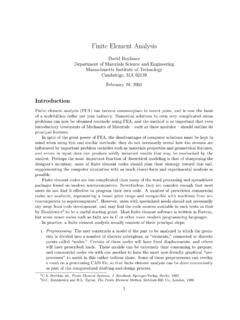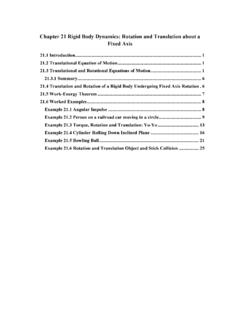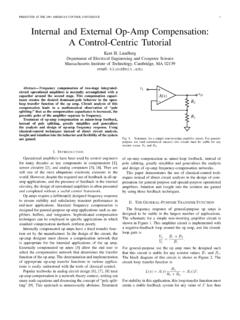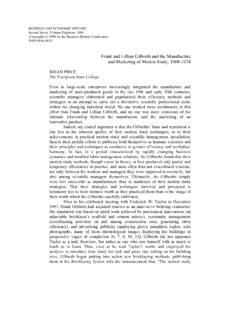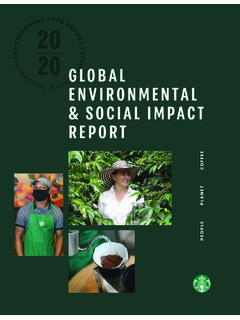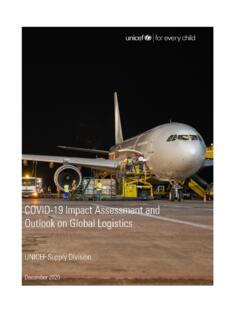Transcription of Entrepreneurship and Innovation at MIT
1 DECEMBER 2015. Entrepreneurship and Innovation at MIT. Continuing global Growth and impact Edward B. Roberts, Fiona Murray, and J. Daniel Kim MIT Sloan School of Management Entrepreneurship and Innovation at MIT. Continuing global Growth and impact Edward B. Roberts, Fiona Murray and J. Daniel Kim Edward B. Roberts and Fiona Murray iii Contents ABOUT THE ECONOMIC impact OF MIT ALUMNI Geographic Survival impact on Employment and Company Funding and 10. Serial 11. TRENDS IN MIT ALUMNI Entrepreneurship .. 13. Growth Rate of New Company 13. Declining Age of 15. Industry Shifts in MIT 15. Gender 16. International 22. OTHER CONTRIBUTIONS TO MIT Entrepreneurship AND 22. CONTINUING DEVELOPMENT OF THE MIT Entrepreneurship 23. Entrepreneurship Education at 24. Internal Entrepreneurship Development 25. MIT's global Entrepreneurial 25.
2 Other Key MIT 26. Entrepreneurship AND Innovation AT MIT: CONCLUSIONS AND 28. Implications of our 28. APPENDIX. SURVEY ANALYSIS AND 32. Main 32. Robustness 33. Entrepreneurship and Innovation at MIT: Continuing global Growth and impact | iv ABOUT THE AUTHORS. Edward B. Roberts is the David Sarnoff Professor of Management of Technology at the MIT. Sloan School of Management, and the Founder and Chair of the Martin Trust Center for MIT. Entrepreneurship . Fiona Murray is Associate Dean for Innovation at the MIT Sloan School of Management; William Porter (1967) Distinguished Professor of Entrepreneurship ; Co-Director of the MIT Innovation Initiative;. Faculty Director, Trust Center for MIT Entrepreneurship ; and Faculty Director, MIT Legatum Center for Development & Entrepreneurship . J. Daniel Kim is a PhD candidate at the MIT Sloan School of Management.
3 ACKNOWLEDGMENTS. We thank the MIT Office of Institutional Research and MIT Alumni Association for their cooperation in developing and implementing the underlying MIT alumni survey upon which this work is based. Jon Daries was especially helpful in carrying out the follow-up telephone survey. We also thank the Lord Foundation of Massachusetts and Deans Ian Waitz of the MIT School of Engineering and David Schmittlein of the MIT Sloan School of Management for providing the financial resources to undertake this work. We appreciate the assistance of MIT Sloan PhD student Joshua Krieger. Finally, we deeply appreciate the assistance of the MIT Reference Publications Office for their contributions to the editing and production of the report, in particular Kimberly Mancino, who led that effort. 5. INTRODUCTION.
4 Leading research-based universities play a significant role in stimulating and sustaining economic growth. These institutions educate not only productive workers who create value as employees of large established firms but also entrepreneurs who commercialize ideas often research-based and build Innovation -driven enterprises. These company founders (and their early employees) exert a major ripple effect in both local and global economies, as new companies have the potential to scale rapidly and thus create jobs. This is especially true for companies based on emerging science, technology, or other sources of innovative concepts, whether in manufacturing process, distribution approaches, or newly defined economic data demonstrate that start-up businesses are the primary driver of job growth and are responsible for a disproportionately high share of job creation, with new and high-growth young firms accounting for roughly 70% of gross job In 2003, in the first study of its kind, Professor Edward Roberts along with then PhD student Charles Eesley developed a survey to explore the entrepreneurial activities of MIT alumni, in particular the rate, location, and success of their new ,4 Since then, other universities, including Stanford, Tsinghua (China), the Technion (Israel)
5 , and University of Virginia, have conducted similar studies of their own alumni entrepreneurs. Several studies limited to the entrepreneurial alumni of business schools have been carried out as well. The findings from the initial MIT survey indicated that MIT alumni were significantly engaged in new enterprise formation. Over 20% of respondents had started one or more for-profit ventures that were still in business in 2006, the year of final data collection. More than 26% of those firms were located in Massachusetts, with the next largest concentration (22%) in California. Nearly 40% of those who reported founding a company were serial entrepreneurs ( , had started more than one company), with an average of start-ups per person. In 2014 a decade later we updated the survey to explore the continuing contribution of MIT alumni to Innovation and Entrepreneurship in the United States and This update is particularly salient given the burgeoning interest in the role of universities in economic growth and the fact that students who graduated between 2004 and 2014 faced a more difficult economic climate.
6 On the one hand, fund raising and capital access became more challenging as the economy entered a period of deep recession starting at the end of 2007, and venture capital assets and investments declined. On the other hand, Entrepreneurship concurrently became a potentially more appealing career choice due both to structural and perceptual changes in traditional employment and occupations, as well as to an apparent groundswell in young people's interests in entrepreneurial endeavors. For instance, the proportion of MIT undergraduates selecting employment in venture capital backed start-ups upon graduation increased from less than 2% in 2006 to 15% in 1. 2. Ryan Decker, John Haltiwanger, Ron Jarmin, and Javier Miranda, The Role of Entrepreneurship in Job Creation and Economic Dynamism, Journal of Economic Perspectives 2014 28(3):3 24.
7 Doi: 3. Edward Roberts and Charles Eesley, Entrepreneurial impact : The Role of MIT. Kauffman Foundation, Kansas City, MO; 2009. 4. Edward Roberts and Charles Eesley, Entrepreneurial impact : The Role of MIT An Updated Report, Foundations and Trends in Entrepreneurship 2011 7(1 2):1 149. doi: 5. The survey was sent to all MIT alumni in February 2014, resulting in 104,169 survey invitations and 19,730 responses (19%. response rate). A follow-up telephone survey of the initial non-respondents was carried out in October November 2015 to check for response bias in business formation response statistics; 1,650 alumni were randomly selected and called, and 254 ( ). of them responded to the brief telephone questionnaire. 6. J. Daniel Kim. Early Employees of Venture-Backed Startups: Selection and Wage Differentials, Working Paper.
8 Cambridge, MA; 2015. Entrepreneurship and Innovation at MIT: Continuing global Growth and impact | 6. Overall, our new findings indicate that MIT alumni are engaged in Entrepreneurship and Innovation (E&I) at ever increasing rates, and at earlier and earlier stages in their lives. The MIT Admissions Office informs us that this trend continues: the dominant percentage of undergraduate applicants to the Institute want to contribute significantly to important global challenges at all stages of the idea-to- impact process from invention and patenting to venture- creation projects within large corporations to launching their own start-ups. Our results confirm that many act on these aspirations once they leave MIT. The following findings have particularly important implications for how we educate the coming generation of global innovators: Of our alumni survey respondents, 31% have filed patents and 34% consider themselves ,8.
9 Twenty-five percent of the online survey respondents have engaged in new company formation. (Thirty-five percent of alumni who responded to a follow-up telephone survey had started one or more businesses.). The proportion of respondents who founded a venture within five years of graduation rose from 4% among those who graduated in the 1960s to 8% among those who graduated in the 1990s. The study also revealed another growth trend in MIT Entrepreneurship over time: The number of companies founded per 100 active alumni increased from 6 among those who graduated in the 1970s to 12 among those who graduated in the 1990s. Twenty-two percent of our alumni respondents have worked as employees of early-stage ventures, indicating their engagement not only in the formation but also in the growth of new firms; 38% of these early employees later went on to start their own company.
10 Our alumni have increasingly engaged in funding Innovation projects: 16% of respondents have invested in new companies (that they did not found). Seventeen percent have participated in crowdfunding to support the invention of a new product or service, a new phenomenon in which graduates from the 2000s in particular have engaged. Of the alumni surveyed, 17% serve as board members of for-profit companies; and 11% serve on a firm's scientific advisory board. ECONOMIC impact OF MIT ALUMNI ENTREPRENEURS. Our new study reveals that MIT alumni contribute greatly to the global Innovation economy and to particular regional Innovation ecosystems. While MIT innovators contribute to companies large and small, as well as to and through governments, universities, and other public sector organizations, we are best able to measure the impact of those alumni who start and build for-profit firms.



